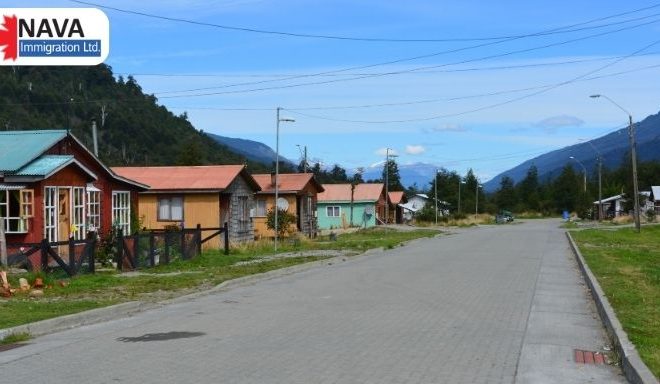Need for IRCC to extend Settlement Services for Temporary Residents
Recently, Canada’s immigration department, Immigration Refugees and Citizenship Canada (IRCC), published its CFP 2024 Stakeholder consultations results.
In order to assist new immigrants in adjusting to their new life in Canada, IRCC manages the Settlement Program and Resettlement Assistance program. The IRCC department collaborates with organizations across Canada to guarantee that the newcomers receive the assistance they need. Many of these types of programs are funded by the IRCC.
The Call for Proposals (CFP) allows IRCC to develop settlement and resettlement programs in Canada that are likely to have the greatest impact on new immigrants to the country.
The most impactful programs are most likely to receive funding. The consultations were held in order for IRCC to gather feedback from the settlement sector on measures being proposed for CFP 2024.
In a year, the government of Canada spends around $2 billion on settlement services. This includes the separate settlement funds provided to the province of Quebec.
Settlement services for temporary residents
In order to understand how to offer support to the newcomers, IRCC interacts with several associations, such as service provider organizations (SPOs), a few non-IRCC funded organizations, and government officials from provinces and territories.
Some of the valuable settlement services for temporary residents include supplying information and referrals to newcomers, aiding them in locating houses and jobs, providing language training, and more.
This is vital because Canada intends to admit around 500,000 new Permanent Residents each year by 2025. However, this target may change slightly in the next Immigration Levels Plan 2024-2026, scheduled to be revealed on November 1.
Stakeholder Consultations 2023
In this year’s stakeholder consultations, nearly 1,187 people participated.
All of them were requested to assist in recognizing and providing input on priority areas that the department must focus on, areas performing well in the settlement and resettlement sectors, and those needing improvements.
Seven distinct webinars were used to gather the results. Additionally, besides the general feedback, IRCC sought suggestions on key areas that must be prioritized for the CFP 2024. These are:
- Right Services;
- Right Time.
- Right Customers;
- Innovation/Outcomes; and
- Francophone Integration Pathway
Areas for Improvement: Settlement Services for Temporary Residents
In the discussions, participants agreed that there is an urgent need to increase the eligibility of settlement services for temporary residents such as international students and temporary foreign workers intending to obtain Canadian permanent residency.
Currently, the majority of settlement services funded by IRCC specifically focus on permanent residents, their partners and children, and eligible asylum claimants.
As per Statistics Canada’s recent population data, nearly 2.2 million temporary residents are present in Canada.
Also, according to the estimation of Canada’s Immigration Minister, Mr. Marc Miller, by the end of 2023, there will be nearly 900,000 international students in Canada, and around 1.4 million individuals in Canada are residing on work permits.
The participants claimed that extending settlement services to temporary residents may become possible as the government commitment to support Ukrainian temporary residents who entered Canada via the Canada Ukraine Authorization for Emergency Travel (CUAET) program.
In addition, the government also provides support to temporary residents who are engaged in the Atlantic Immigration Program (AIP), i.e., a specific economic immigration program in Atlantic Canada.
As per the report, participants in every webinar also highlighted the hardships in drawing and keeping skilled staff. They added that for both staff and customers, increased reach to mental health support may be helpful. It would entail enhanced training for the team to identify when new immigrants, particularly refugees, are experiencing mental health challenges; as a result, they can be sent for further assessment.
For instance, participants discussed the necessity for a centralized approach to ensure that all immigrants are informed that settlement services are available for them, beginning from the pre-arrival phase of their immigration process. Some of the participants also stated that screening should be continual rather than only during the intake period.
Furthermore, participants also suggested that IRCC provide SPOs greater flexibility in how funding is allocated so they can better respond to customer’s requirements. This would enable the providers to meet immediate, short-term demands rather than waiting for the next five-year financial cycle to begin.
Reporting Requirements Difficulty for SPOs
As per the report, the participants also feel that reporting to IRCC tends to focus too much on quantitative measures rather than measuring the performance and impact of clients. They claim that there are positive effects to indirect services that are not accounted for in iCARE.
iCARE is a platform meant to enable the delivery of settlement services as well as the monitoring of service activity results.
Smaller SPOs may lack specialized human resource departments capable of devoting the time required for data collection and reporting.
Participants expect to see a more dynamic and adaptable database for downloading and manipulating customer data.
Regional differences in Canada
In the end, the report described the regional differences in Canada and stated that different areas have different demands when it comes to providing support to new immigrants to the country.
For instance, the Atlantic Canadian region lacks public transportation options outside of the major cities. Thus, in order to address basic needs like purchasing everyday essentials or finding a house to live in, new immigrants significantly depend on the volunteers.
IRCC doesn’t permit the use of SPO grants to pay volunteers for transport costs.
The SPOs of Ontario request IRCC for more partnerships across organizations. This must also include growing the referrals between service providers. This is besides the more flexible, short-term funding to address the crises while continuing to run general operations.
Despite the fact that IRCC has a tool specifically designed to aid new immigrants in locating settlement services near them, the prairie provinces, i.e., Manitoba, Saskatchewan, and Alberta, as well as the Northwest Territories, are in favor of having an app, particularly designed to help newcomers to quickly and easily find the settlement services and make recommendations easier.
Well-Performing Areas
Aside from the participants’ recommendations, the report also underlined the areas where IRCC has been effective in assisting SPOs.
The participants cited that there is a high level of collaboration between federal and provincial governments and organizations. In addition, it stated that many services are easily accessible outside of working hours in single locations.
Furthermore, they added that the department performed well in providing specialized, culturally sensitive services for refugees like mental health with interpretation help and in following a ‘by and for’ method to deliver services to French-speaking new immigrants.





